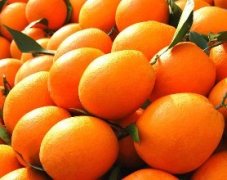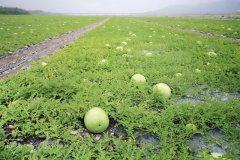What is the fitness of the growth habits of Taiwan lotus to temperature? How much is the price of Taiwan lotus fog per jin?
Taiwan lotus fog we know, this kind of fruit is very famous, do you know? This kind of fruit is very afraid of frozen weather. What are the effects of frozen weather on lotus fog?
Over the past few days, the low temperature has made many people unbearable, and it has also made the farmers of Lianwu frown deeply. The sales volume of Taiwan's lotus trees has increased six-fold in the past two years, but the delicate lotus trees are afraid of the cold and the wind. in 2012, the harvest area of Taiwan's lotus trees was about 5,000 hectares, but it dropped to 3,500 hectares last year due to extreme weather. The total output is only 60% of what it was five years ago, coupled with the high cost of cultivation and management, which requires intensive labor input. Although the market demand is large, many lotus farmers are still looking for another way to plant mangoes with good prices. This downward trend has not yet bottomed out.
Lianwu is an important high-screen industry. In 2012, the sales volume of Lianwu was about 400 tons. In the past two years, it reached 2,900 metric tons, and the demand has increased sixfold, of which 96% are sold to China.
Lai Jung-Mao, an associate researcher at the improvement farm in Kaohsiung District, says that at present, Taiwan's lotus flower is very popular in China. Lotus flower is no more valuable in processing than other agricultural products, and it is mainly fresh food, so it is very important to have a place to sell directly after picking. Although the export volume is less than 10% of the total output, the export price is not bad, which is still helpful to the income of farmers.
However, many farmers can not see the prosperity of such an industry. During Typhoon Moranti in 2016, up to 40% of the lotus trees in the lotus fog garden run by Yu Xianyou, a farmer in Jiadong, Pingtung, were blown down, and many trees were even uprooted. "it will take five years to replant so that the harvest can be stable, and it will take three years to recover as soon as it is damaged by the wind. "
He sighs that Lianwu is no more expensive than vegetables, and it takes longer to invest. When the weather is extremely unstable, the risk is even higher. Although he still insists on running Lianwu after the disaster, many of his colleagues can't afford to gamble with typhoons, so they can't survive long ago.
According to the statistics of the Council of Agriculture, the harvest area of lotus trees in Taiwan fell from about 5,000 hectares in 2012 to 3,500 hectares last year, and the total output dropped from 80,000 tons to 50,000 tons, leaving only 60% of what it was five years ago. The price now ranges from 10 to 30 yuan.
"I have heard that fruit growers have received four or five disaster compensation payments in five years. Lai Rongmao said that the unstable climate directly affected the loss of some lotus farmers in the harvest, leading to the abandonment of seeds.
Li Wenli, director of the Fengshan Branch of the Agricultural examination Institute, observed that mango prices have been good in recent years, and they are also exported to Japan and China. Many lotus farmers in Lianliao in Pingtung have changed to mango, and mango orchards are easier to manage than lotus gardens. It is estimated that lotus farmers may continue to turn into a tide in the future.
The cultivation and management of lotus trees are not easy, and the lotus trees can only bear fruit after avoiding natural disasters.
Not only typhoon, Lianwu is afraid of cold and lack of work. In addition to being afraid of the wind, when the weather is cold, the lotus fog skin is prone to pits, and it is also easy to drop fruit under the condition of immaturity and lose its commodity value. If the rain is too strong and the humidity is too high, the lotus fog is also prone to disease.
Another reason for abandoning the seed is the aging of the countryside. Lai Jung-Mao says that the operation and management of Lianwu requires intensive manpower investment, and Pingtung has the largest number of places where Lianwu is planted, accounting for 70% of the entire lotus industry. Old farmers retire and there is no second generation to take over, directly affecting the lotus industry.
Lai Jung-Mao added that recently, it has been heard that some channel operators want to enter the production side and set up a demonstration garden for lotus flower, so as to stabilize production and marketing supply, which may also be another new development of the lotus flower industry.
Identify new varieties and improve cultivation habits
In order to revitalize the lotus industry, the Kaohsiung District Agricultural Reform Farm has made a lot of efforts to adjust the physique of the lotus trees, such as adjusting the shape of the trees to improve the efficiency of photosynthesis, so as to strengthen the trees and accelerate their recovery after being harmed. Recently, with the attack of cold air masses, the orchards can also draw groundwater to keep the lotus trees warm.
In 2014, the Fengshan Branch of the Agricultural examination Institute developed a new lotus variety, "Tainong 3," which is dark red in color, sweeter and bigger, and can weigh up to 200 grams or even 3 hundred grams, also known as "Black Sugar Barbie." the most important thing is not afraid of the cold.
The Feng test points out that the black sugar Barbie has a high rate of good fruit in winter, spring and summer, and the color of the peel is not easily affected by low temperature. the shape, color, and quality are all good, which meets the requirements of Taiwan's high-end gift boxes, and is quite suitable for gift-giving during the Spring Festival.
Li Wenli explains that at present, the six tortoises in Kaohsiung and Jiadong in Pingtung are growing black sugar barbies. the total planting area is about 40 to 50 hectares, and the output is very sparse. It has been called for 1,000 yuan per kilogram in the auction market, and new varieties will continue to be promoted in the future. improve the competitiveness of the lotus industry.
- Prev

New varieties of imported oranges Valencia orange, Valencia orange introduction How to harvest
Do you like oranges? Do you know what kinds of oranges there are? Have you ever heard of the Delta Valencia orange variety? This orange variety has a long history. Let's take a look! Original work made in South Africa in 1952. With other tiles
- Next

What are the effects of weather on watermelon before harvest? Taiwan's fruit variety watermelon becomes smaller
The weather is very hot, at this time, to a piece of ice-cold watermelon, is not it very cool?! A warm winter coupled with drought has affected this year's summer fruit production, as has watermelon. The weather pattern is shower followed by sun, and the weather conditions before harvest are not smooth, affecting the size of watermelon.
Related
- The first cup of black tea in spring, the flavor and history of tea gardens in Kenya, Africa
- The computer can not only choose potatoes, but also grow tea rice. AI will grow winter oolong tea champion.
- It is not only the inflated tea bitten by insects, but also engraved with the four seasons tea in Beipu.
- The Oriental Beauty Tea Festival in Zhuxian County takes the stage at the weekend to experience the plus-size feast of oil tea.
- & quot; Oriental Beauty Tea & Exploration of Emei in Hsinchu, the hometown of quot;
- The new variety of strawberry "Tainong 1" dessert is the first choice with mellow aroma. Crimson gorgeous
- History of Tea in Taiwan: from Wild Inner Mountain to Export Tea Garden
- Two types of Taiwan Oriental Beauty Black Tea won the British three-Star Award for Childhood Tea Xiang Zhang Jiaqi changed from pilot to champion tea maker.
- Banana species and varieties: the planting history of Taiwan Xianren banana and dwarf banana is long, is banana disease resistant?
- Coffee planting Technology: Qianjie Coffee from Seedling to harvesting

